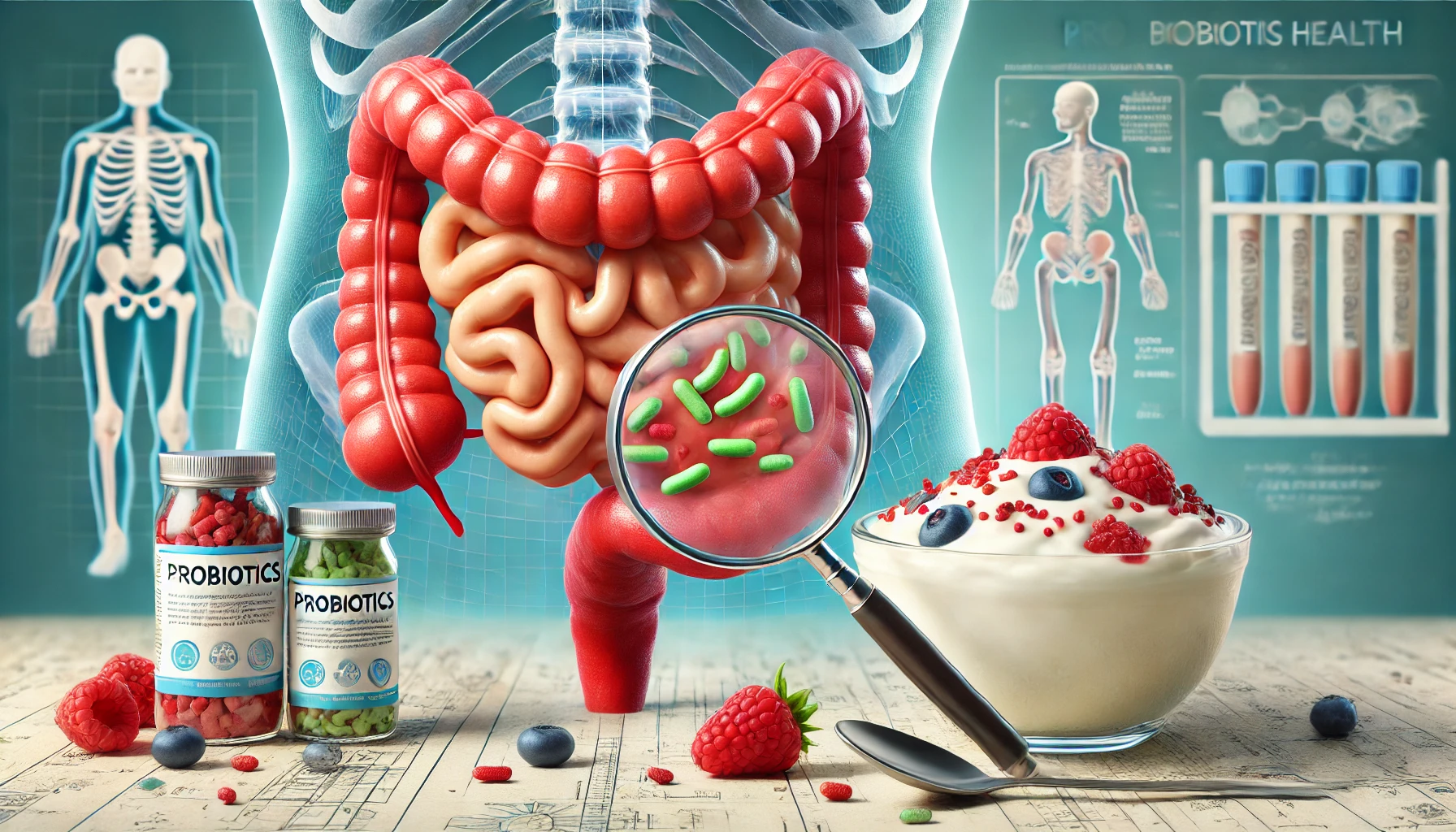In 2019, the global market for probiotic supplements was over 6 million US dollars, and this number is on the rise. Many supermarkets and websites sell a huge range of probiotic yoghurts and pills, all of which claim to use ‘good’ bacteria to improve your health. Do the good bacteria in these probiotics stick around in the gut or do they just quickly pass through our digestive systems? Do probiotics need to colonise our guts in order to work? To find out more, we asked 13 experts in microbiology and the microbiome, ‘Do probiotics permanently colonise the gut?’, here is what they said. This consensus is based on 13 experts answers from this question: Do probiotics permanently colonise the gut?
What are probiotics and what are they for?
Probiotics are live microorganisms – bacteria and yeast – which you can eat. There are many types of so-called ‘good’ or ‘friendly’ bacteria and fungi, the most commonly used are those in the Lactobacillus and Bfidobacteria families. These microbes can be found in a range of probiotic products such as yoghurts, capsules and drinks.
Probiotic products claim to alleviate numerous ailments, including, but not limited to constipation, diarrhoea, colds, urinary tract infections and eczema. Probiotics are said to work by restoring the natural balance of microbes in your gut microbiome. The microbiome is the collection of trillions of microorganisms that live in the human body and help the immune and digestive systems to work properly. The delicate balance of the microbiome ecosystem is known to be important to human health. It is sometimes assumed that in order for probiotics to work, they need to integrate into the microbiome and colonise the gut.
Learn more with Consensus AI Academic Search Engine:
🥛What are probiotics and what types of microorganisms do they contain? 🧬How do probiotics claim to benefit human health? 🚧What are the limitations of current research on probiotics and gut health?What is the evidence that probiotics permanently colonise the gut?
Most of the experts said that the evidence suggests that probiotics do not permanently colonise the gut. Dr Philippe Langella, a microbiologist from the National Institute of Agricultural Research in France, says “the traditional probiotics such as lactobacilli or bifidobacteria will not colonize the gut of a healthy volunteer… Such probiotics could persist in the gut between 2-3 days for lactobacilli and 5-7 days for bifidobacteria but they won’t colonize the gut. That’s why the probiotics should be taken daily”
There are many types of probiotics, however, as Dr Bernhard Paetzold, a microbiome expert from S-Biomedic, highlights “It will depend on the exact strain of probiotic, its way of application/ingestion and the existing microbiome of the host whether a bacterial strain will permanently colonise the gut.” The existing microbiome is particularly important, Professor Tine Licht, a microbiome expert from the University of Denmark, says “in a gut with an incomplete bacterial community, for example that of a newborn child, or of a patient treated with antibiotics, probiotic strains are more likely to establish for a longer period.”
There are a few ways to study whether probiotics have colonised the gut. Professor Licht says “Several studies show that after consumption of probiotics, one can (not surprisingly) measure that they come out again with faeces” The presence of different bacteria can also be assessed by taking small samples of the gastrointestinal tract using endoscopy. Dr Arthur Ouwehand, a microbiology expert from DuPont Nutrition and Health, says “While there are some odd cases where a certain probiotic strain has been identified in one or two subjects of a large number of people consuming the strain. This is the rare exception that confirms the rule.”
Learn more with Consensus AI Academic Search Engine:
🧘♀️What is the role of the gut microbiome in overall health? 🍶Can probiotics provide health benefits without permanently colonizing the gut? 🐄How do probiotics benefit the gut microbiome if they don't permanently colonize it?Can probiotics still be beneficial even if they don’t permanently colonise the gut?
Professor Licht says “permanent colonisation is not necessarily a prerequisite for the probiotics to have a relevant effect. Even dead bacteria may induce specific responses in a host.” Probiotics may produce metabolites that influence the activity of the other microbes in the microbiome, this mechanism doesn’t require the probiotics to colonise the gut to work. In fact, we would probably want to avoid taking any bacteria that permanently colonise our gut. Dr Ouwehand says “It is difficult for an incoming microbe to establish itself in a fully inhabited environment. Let’s be grateful for that; it also makes it difficult for pathogens to establish themselves.”
Dr Hannah Wardill, a microbiome expert from Adelaide University in Australia, summarises “Probiotics usually colonise the gut transiently, meaning if you want the ‘benefits’ to stick around, you need to keep taking the capsules. Importantly, the term ‘benefits’ must be approached with caution, as there is limited evidence to support any benefits of probiotic use in healthy people, and varied data to support them across other clinical scenarios e.g. inflammatory bowel disease. A balanced diet full of fibre is the best to support the long-term health of your gut microbes”
The takeaway: Probiotics do not permanently colonise a healthy gut, but that doesn’t necessarily mean that they can’t influence the microbiome.
Learn more with Consensus AI Academic Search Engine:
🦠Can probiotics persist in the gut for a few days even if they do not colonize it permanently? ✍🏻Is there limited evidence supporting the benefits of probiotics in healthy people?